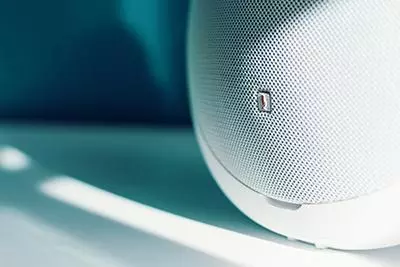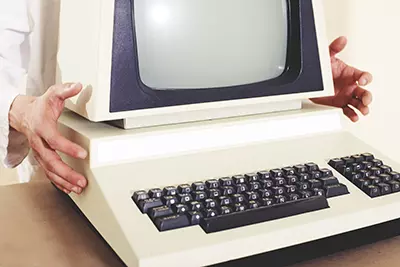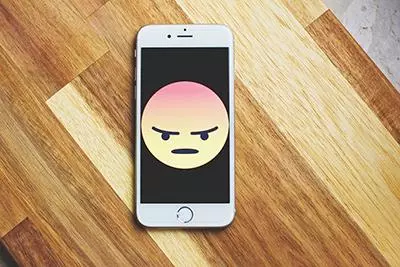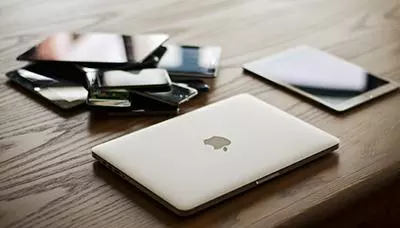 High-end smart speaker provider Sonos have just announced that they're shortly going to be dropping support for some of their older speakers. "So what?", you might think. "Updates are just an annoyance anyway". While this may be partly true, they're also a necessity.
High-end smart speaker provider Sonos have just announced that they're shortly going to be dropping support for some of their older speakers. "So what?", you might think. "Updates are just an annoyance anyway". While this may be partly true, they're also a necessity.
Updates to any bit of software generally fall into one of three categories - features, maintenance and security. The first of these are the things you actually notice, but the other two are in many ways far more important. We've covered security updates to various services many times in the past. These are patches to flaws found to keep your devices safe from those trying to access them without consent.
However, maintenance releases are rarely mentioned, but as the name suggests, they're updates that keep things ticking over. In the case of Sonos speakers, they're adjustments to the code to ensure that any improvements / changes made by Spotify, Amazon Music et al are mirrored at the Sonos end so the devices carry on happily talking to them. If these updates stop, as soon as a 3rd party like Spotify makes a change that needs a code adjustment at the Sonos end to keep everything running, that 3rd party service will stop working forever. Given the pace of change of these services, this will quickly render an unsupported smart speaker completely useless.
 How did we get (to not) hear?
How did we get (to not) hear?
Software obsolescence is nothing new, of course. We have been used to the operating systems on our PCs having a shelf life. Indeed, support for Windows 7 was dropped just a few days ago after just over 10 years of service. While there have always been grumbles about this, we have mostly grown to accept it. A heavily used PC often starts having hardware issues after 5 years or so, so we're often switched to a new operating system at that point anyway. There's also a lot of obvious improvements from one version to the next. Yes, a lot of people will say they hate a new operating system, but we've found the same people will be begging to keep it because it's perfect by the time the next one rolls around! We've covered the cost of being an upgrade refusenik in our "Price of no progress" blog.
After PCs came the phones. Here, the constant stream of updates are even more apparent. Most of these are to the individual apps. However, there's also the (usually annual) updates to the operating system. Again, these are only provided for a set period, but we're often ready for a new phone before this becomes an issue. While the provision of ongoing security updates is most definitely an issue on many Android phones, the apps tend to continue supporting older version of the operating system for many years, so a phone can soldier on for quite a while with no obvious software issues (dodgy security aside).
Then onto TVs! Most of us (whether we like it or not) now have a TV with varying degrees of "smart". For most, this is a range of apps that allow direct connections to things like iPlayer, Netflix and Amazon Prime. All the while they're working, these are often very useful features. Until one day they stop working. Just to pick one example, users of many Samsung devices found that iPlayer stopped working before Christmas. This was remedied on some of the devices, but a day will come that your TV is deemed too old to support and the smart features will start failing one by one. But again, we sort of accept this. Even if the smart features on a TV stop working, the screen itself still works, and it's possible to work around a lack of smarts by plugging in an Amazon Fire Stick, Chromecast or similar.
Right Hear, Right Now
 So why are people up in arms about this Sonos announcement? Just another example of the same thing, right? Well, in software terms, yes. However, there's a couple of things that make this feel different. Firstly, many people use smart speakers soley to connect to various external 3rd party services (Spotify etc). If the speaker can no longer connect to these services, it's literally useless to them. Some of the speakers don't even have the means to wire them up with a cable / connect over Bluetooth so they could carry on being useful in that respect.
So why are people up in arms about this Sonos announcement? Just another example of the same thing, right? Well, in software terms, yes. However, there's a couple of things that make this feel different. Firstly, many people use smart speakers soley to connect to various external 3rd party services (Spotify etc). If the speaker can no longer connect to these services, it's literally useless to them. Some of the speakers don't even have the means to wire them up with a cable / connect over Bluetooth so they could carry on being useful in that respect.
Secondly, the perceived speed of "advances" of speakers is a lot slower than PCs. Indeed, Sonos speakers have been relatively top notch audio-wise from the beginning, and that's pretty much the main criteria for a speaker. Newer Sonos speakers come with Alexa (which some may even see as a negative!), but you're unlikely to notice any changes beyond that. Having to spend hundreds of pounds to buy basically what, on the face of it, appears to be the same thing again just feels wrong.
However, we don't want to single out Sonos here. As we've already covered, this is and forever will be an issue for any device that connects to the internet and involves interaction with 3rd party services that change over time. Given how willingly we're buying into all sorts of new smart devices, this is going to become an increasingly familiar issue. Smart bulbs, watches, doorbells, heating, locks and the rest all rely on updates to both their software, and the software on the device controlling them (usually a mobile app). When the software on the phone is too old to talk to the device or vice versa, you're going to have no choice but to buy a new one.
 Companies cannot be expected to support their devices indefinitely. It takes time and therefore money to continue to update devices so they remain compatible with the various services they connect to. The amount of time that company should be expected to support a device is certainly up for debate. However, a "reasonable" support period is still likely to be less than what has historically been the normal working life of something like a speaker.
Companies cannot be expected to support their devices indefinitely. It takes time and therefore money to continue to update devices so they remain compatible with the various services they connect to. The amount of time that company should be expected to support a device is certainly up for debate. However, a "reasonable" support period is still likely to be less than what has historically been the normal working life of something like a speaker.
So as the array of devices with smart features being added increases by the day, it's definitely worth considering what will happen when the support for that device is dropped. If you buy a kettle that can be switched on via a phone app, it will almost certainly also still have a way to operate it manually when that app stops working. However, as ridiculous as it may sound, when security updates cease, that kettle will be a weak point in your network and provide a possible method to compromise other devices.
None of this is to say that you should avoid internet connected devices entirely. Even if you wanted to, the genie is out of the bottle now and there's no putting it back in. However, it's definitely worth pausing and considering whether it's really worth adding another everyday item into this endless cycle of updates and obsolescence when weighing up if you really need that smart umbrella.
